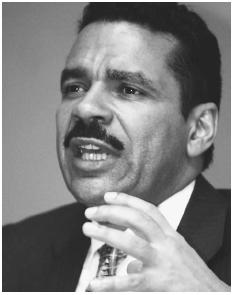Interpol (International Criminal Police Organization)
█ CARYN E. NEUMANN
Interpol is an international organization based in Lyon, France, that fosters global police cooperation by sharing

intelligence about cross-border criminal activities among its 181 member nations. Despite popular misconception, the organization maintains no police force of its own. Each member nation maintains and staffs a National Central Bureau to direct Interpol intelligence, while local authorities investigate and prosecute criminals according to national laws. Interpol's actions are limited to receiving requests for assistance; analyzing criminal activities that are not of a political, military, religious, or racial character; and disseminating notices published in four languages (English, French, Spanish, and Arabic) to its members. It currently focuses upon public safety and terrorism, organized crime, illegal drug production and smuggling, weapons dealing, trafficking in human beings, money laundering, and financial and high technology wrongdoing.
Begun in 1923, Interpol is an international effort to halt crime that has occurred or is projected to occur in multiple countries. Although headquartered in France, no country dominates the group and its funding is provided by a sliding scale membership fee that is based upon each country's gross national product (GNP). The organization's policies are set by a vote of its member countries while the governors on its executive committee are required to be drawn from different continents. The secretary general, elected every five years by two-thirds of the members attending the annual General Assembly, is Interpol's chief executive and senior full-time official. Daily activities are conducted at the General Secretariat in Lyon with a staff of 384 who represent 54 different countries. National Central Bureaus (NCB) in member countries ferry Interpol information to appropriate local authorities who bear responsibility for apprehending and extraditing suspected criminals. Five NCBs also act as Regional Stations with Lyon covering Europe, North America, and the Middle East: Nairobi, Kenya, responsible for East Africa; Abidjan, Ivory Coast, focusing on West Africa; Buenos Aires, Argentina, addressing South America; Tokyo, Japan, transmitting to Asia; and Puerto Rico, assisting the Caribbean and Central America.
No nation is required to respond to an Interpol request. Some countries, notably the United States in the years leading up to World War II, have declined to fully cooperate with Interpol for fear that its files may be misused for the prosecution of political criminals. In 1956, the organization agreed to forbid any activities of a political, military, religious, or racial character, but concerns remain that some countries may potentially ignore these guidelines. The chief fear of many member countries is that classified information may fall into the hands of terrorists since the distribution of intelligence cannot be restricted once it enters the Interpol system. Although this worry has reduced the amount of classified information flowing through Interpol, the organization has experienced a steady increase in information traffic. In 2000, Interpol transmitted 2.5 million messages, placed 15,116 notices of criminal activity in circulation, and projected that 1400 people would be arrested or located as the result of Interpol intelligence. Interpol notices are coded into ten different colors that represent different purposes. The red wanted notices are the most common and this type of communication requests the arrest of subjects for whom an arrest warrant has been issued and extradition will be sought. The other notices are: seeking the identity and location of subjects who have committed or witnessed criminal offenses (blue); providing warning about career criminals who have committed offenses in several countries (green); seeking missing or lost people, especially children abducted by parents (yellow); seeking the identification of corpses (black); warning of unusual modus operandi (purple); sharing knowledge of organized crime groups (gray); and advising of criminal activity with international ramifications that does not involve a specific person or group (orange). Stolen property notices are also distributed but are not coded.
As the second largest international organization behind the United Nations, Interpol has a record of proven success. It continues to grow as new nations join and the organization betters its communications system. The increasing global movement of people and the concomitant jump in international crime likely means that Interpol will remain a popular crime-fighting tool well into the twenty-first century.
█ FURTHER READING:
BOOKS:
Anderson, Malcolm. Policing the World: Interpol and the Politics of International Police Co-operation. Oxford: Clarendon Press, 1989.
Bresler, Fenton. Interpol. London: Sinclair-Stevenson, 1992.
United States Department of Justice and United States Department of the Treasury. Interpol: The International Criminal Police Organization. Washington, D.C.: Government Printing Office, 2002.
ELECTRONIC:
Interpol. "Interpol Information." < http://www.interpol.int/Public/Icpo/default.asp > (January 17, 2003).
Comment about this article, ask questions, or add new information about this topic: